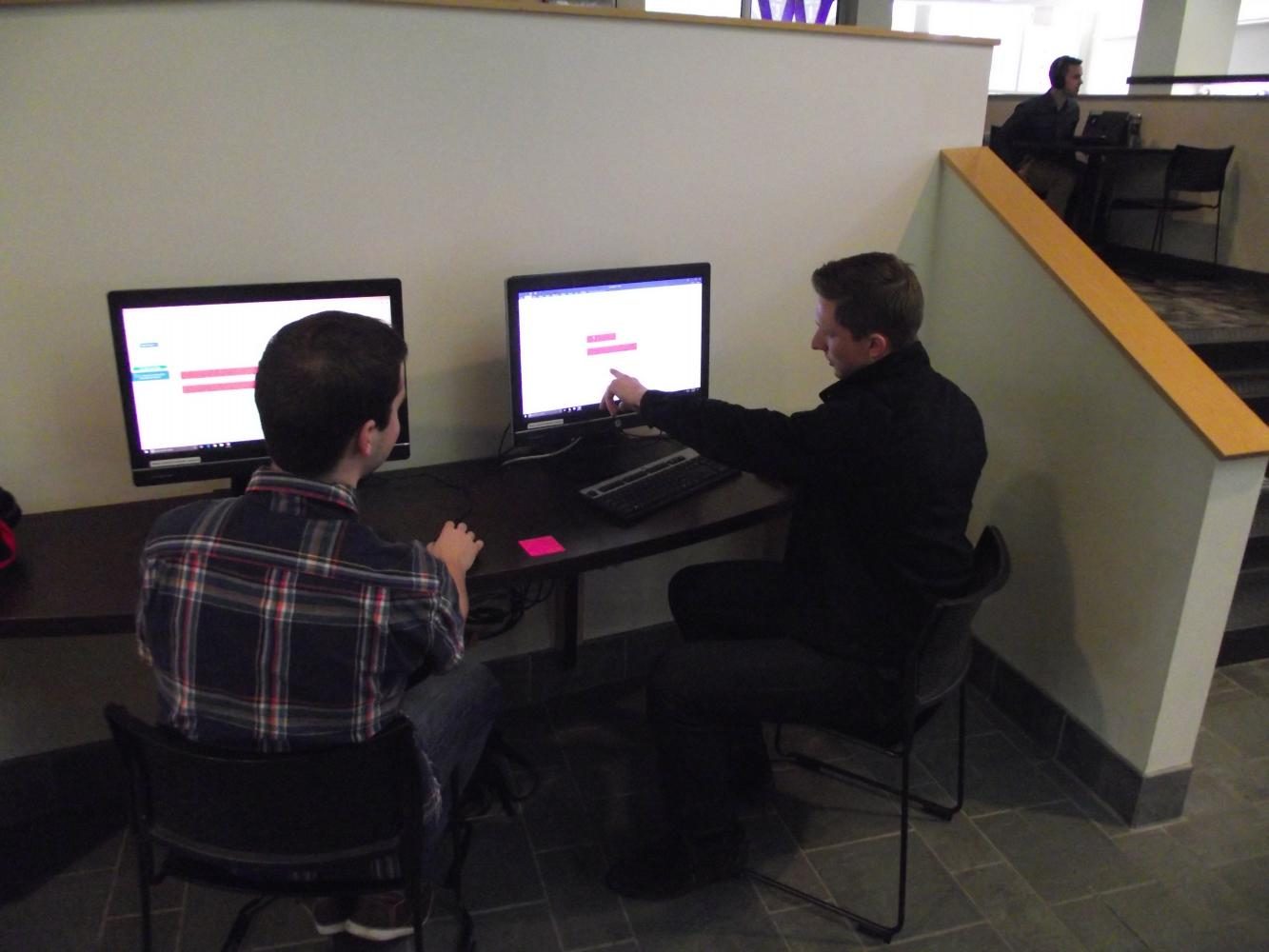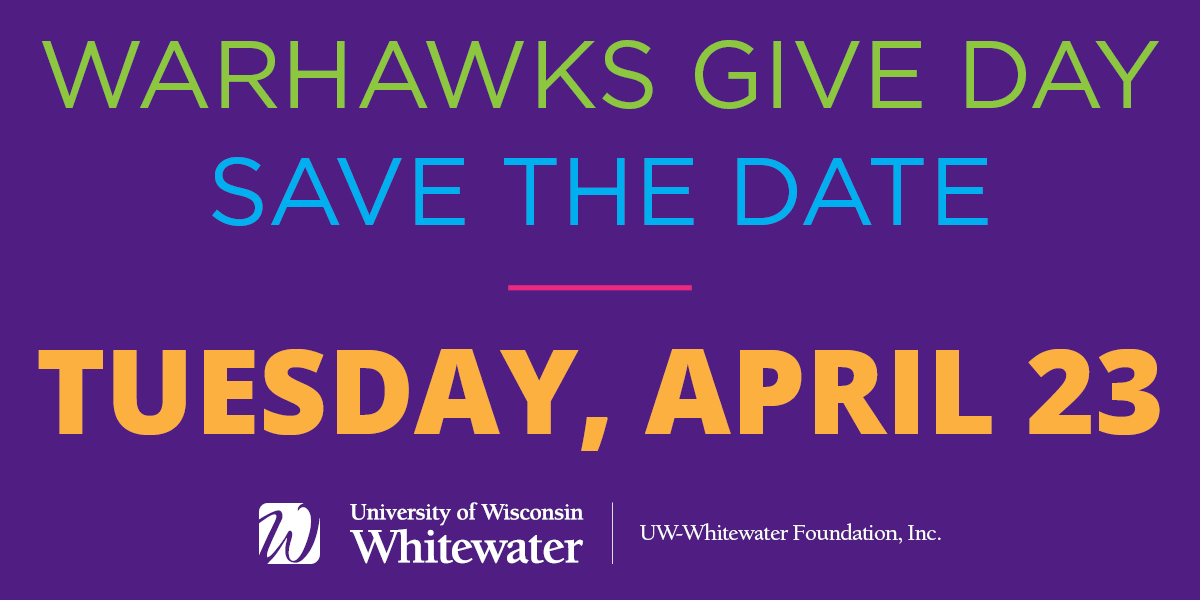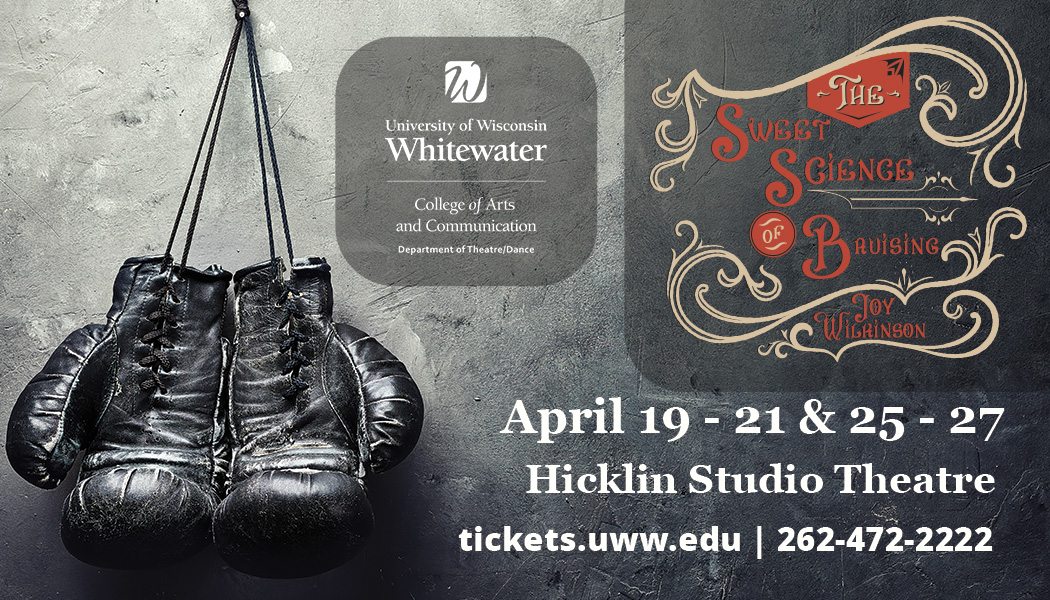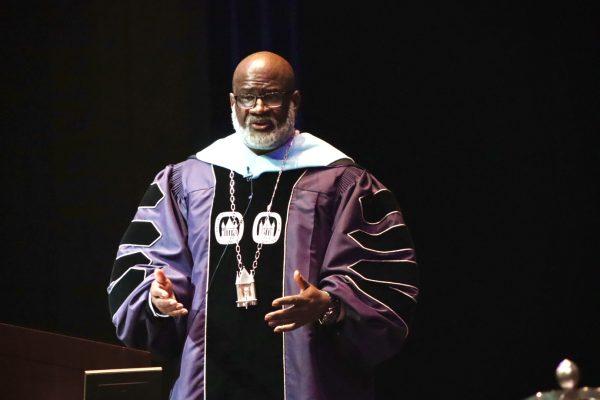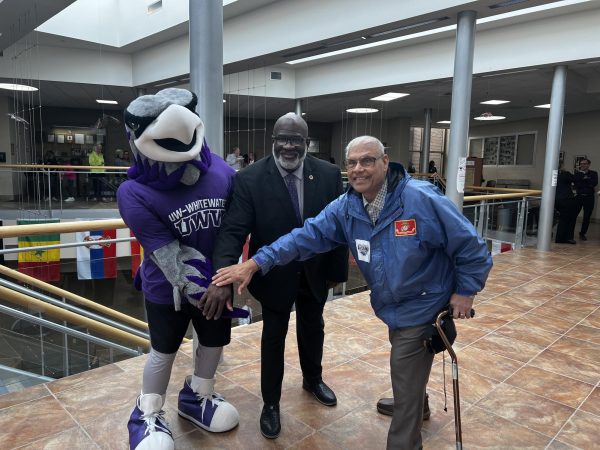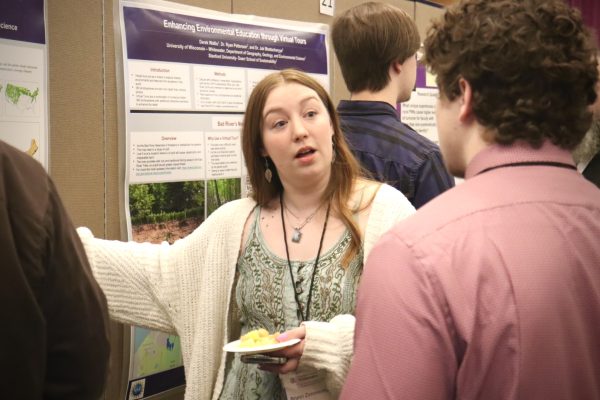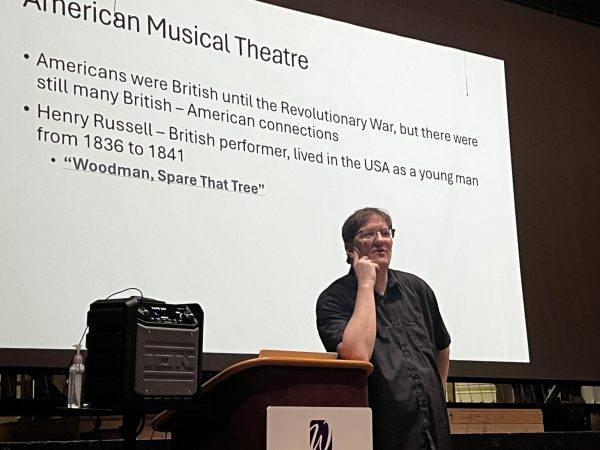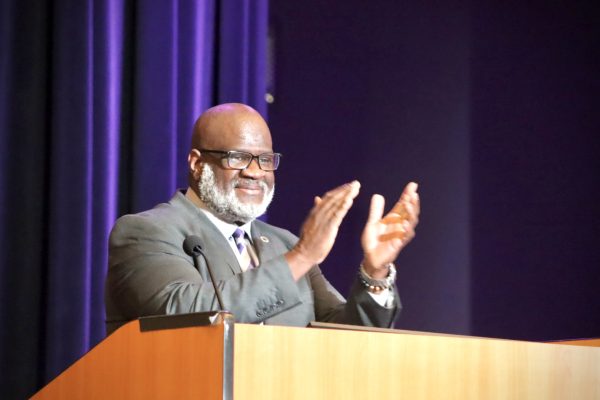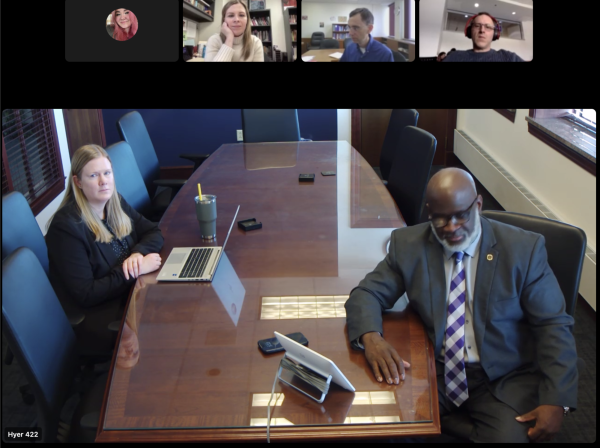Students create vaccination study
photo by Kolton Hegstrom / Assistant News Editor
Seniors Jacques LaReau and Trevor Beckmann sift through vaccination research together in the UC.
May 3, 2017
Over 60 percent of UW-Whitewater students did not receive their flu vaccination during the 2016-2017 school year according to a new study done by two students.
UW-Whitewater Seniors Jacques LaReau and Trevor Beckmann, both Biology majors, did a survey of 1,185 Whitewater students to find out if students got vaccines and why they didn’t. LaReau focused on the influenza vaccine while Beckmann focused his research on the HPV Vaccine.
The initial goal of the research was to find out how much misconceptions about vaccines contribute to people not receiving them.
“I’m a Biology major and I even thought that the flu vaccine could cause the flu, up until last year,” LaReau said. “It made me wonder how many other people have that misconception.”
So along with asking if the students got the shots LaReau asked two other questions. The first question, can the influenza vaccine cause influenza? The second question, can influenza be treated with antibiotics? The answer to both questions is no.
Of the 1,185 students surveyed 750, or 63.3 percent, did not receive the influenza vaccine. Of those 750 students 76.1 percent answered one or both of the questions incorrectly. This leads LaReau to conclude these misconceptions are somewhat responsible to the large number of students who did not receive the vaccines. LaReau says that he believed one of these misconceptions before he researched the topic himself.
Beckmann’s research revolved around GARDASIL 9, the most common vaccine for the Human Papillomavirus or HPV. The first question was how often should a person be vaccinated for HPV? The second question was what is the maximum recommended age to receive the HPV vaccination? Slightly over half of students knew that the vaccine was a single series of three shots. Only 28 percent of students knew that the maximum recommended age to receive the vaccine was 26 years old.
The answer to the second question was as troubling as any in the survey. Of the 1,185 students who responded 591 believed that 17 was the maximum age to receive the vaccine. This belief can be dangerous amongst college students because it is important to know that it is not too late for most students to receive the vaccine.
HPV is the most common sexually transmitted infection in the United States. The virus can cause serious health problems including cancer, but it is important to know that not everybody who has the virus shows symptoms. The vaccine could prevent many of the problems caused by the virus.
Both students did this research as part of the Healthy People 2020 campaign. This campaign focuses on making the United States as healthy as possible by 2020. The campaign’s goal for the percentage of population with the influenza vaccination is 70 percent, far off from UW-Whitewater’s 36.7 percent.
LaReau and Beckmann want students to know how available the vaccines are to them. During the fall the Ambrose Health Center, the building right next to the University Book Store, gives flu shots to UW-Whitewater students for $5. People may also receive the shot from their doctor, Walgreens or Wal-Mart. The HPV vaccine is covered by most health insurance plans.
“Even if you say to yourself, ‘I never get the shot and I never get sick,’ it’s important to realize that there are other populations that are more susceptible to the spread.” Beckmann said, “So getting the shot can help prevent that spread and help others.”
Both vaccines may even be more important on college campuses due to the behavior of the students and the proximity in which they all live. If more students received the vaccines and brought up the campus immunity it would slow the spread of influenza and HPV across campus.

